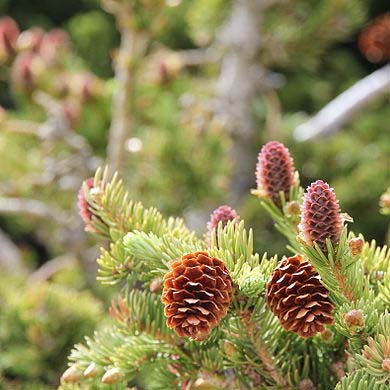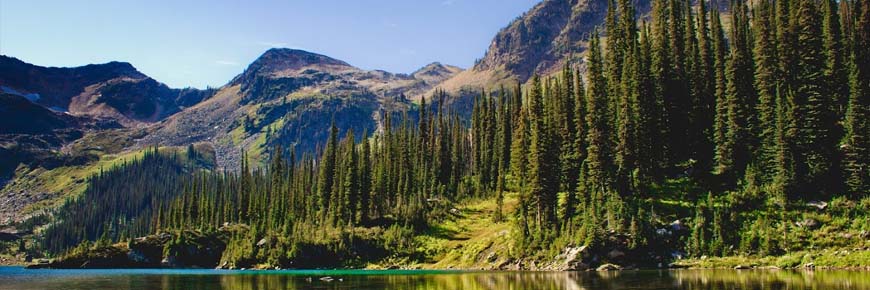
Subalpine trees
Mount Revelstoke National Park
High up in the mountains trees don’t grow quite as tall and the forest is much less dense, due to long snowy winters and a short, cool growing season. Only trees with cones and needles are found at high elevations. These trees have conical, spire-like shapes, an adaptation to help shed snow. In open areas near treeline, trees can become gnarled or shrubby from constant exposure to the wind and harsh environment. At higher elevations on the Meadows in the Sky Parkway, and through much of Glacier National Park, the tell-tale narrow crown, and short stiff branches, of the subalpine fir are evident everywhere you look.
Engelmann spruce (Picea engelmannii)
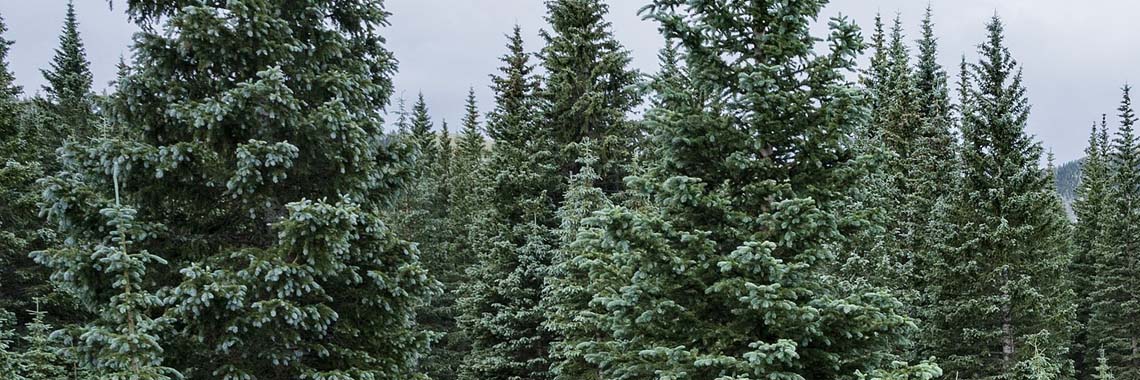
Don’t shake hands with a spruce! Spruce are known to have spiky needles that poke if you try to grab a branch. Their cones have soft, papery scales while their bark is scaly, flakey, and grey-purple in colour. This coniferous tree tends to grow at low to high elevations and it can live up to 1000 years! The pitch (or sap) has been used by Indigenous people as a poultice for slivers and sores. Their young, bright green needles are known to be very high in Vitamin C and have been chewed as a treatment for coughs.
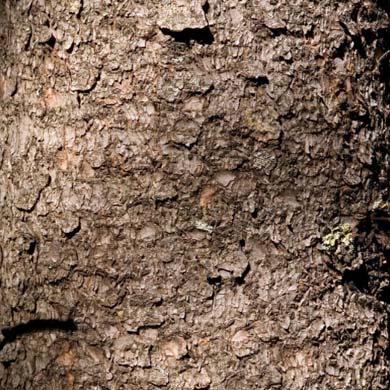
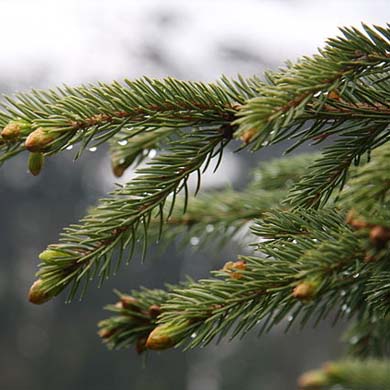
Mark Heard, CC BY 2.0, via Wikimedia Commons
Mountain hemlock (Tsuga mertensiana)
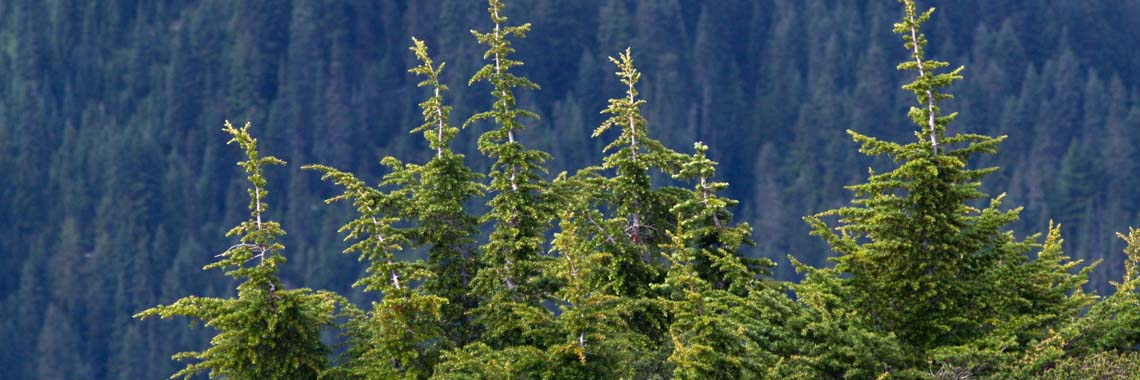
The mountain hemlock, as opposed to the western hemlock, has needles growing all around the twig, giving their branches a scruffy appearance. Its cones are 3-8 cm long and the tops are slightly less droopy than that of its western hemlock relative. Mountain hemlock grows along the coast and in areas of the inland temperate rainforest that receive the most precipitation.
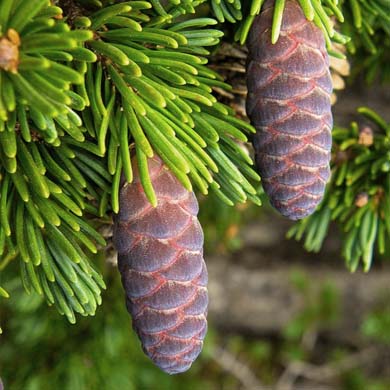
Peter Stevens, CC BY 2.0, via Wikimedia Commons
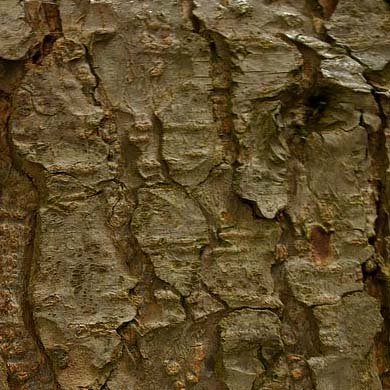
Leslie Seaton, CC BY 2.0, via Wikimedia Commons
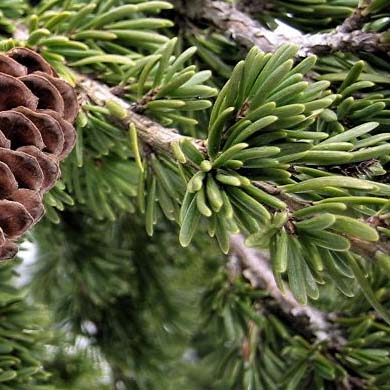
Subalpine fir (Abies lasiocarpa)
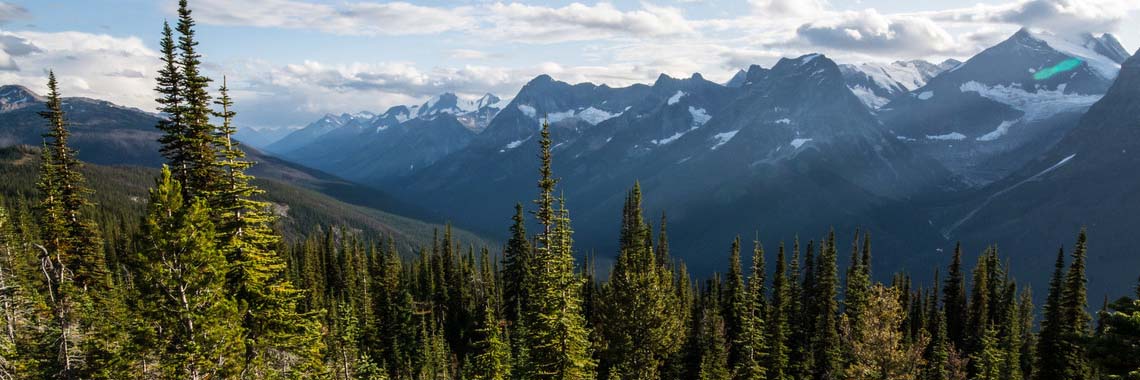
These tall, skinny cone-shaped trees shed snow easily, allowing them to thrive in the deep snowy environments of their subalpine home. They live alongside the Engelmann spruce and can be distinguished by their notched tip needles with white stripes along the sides. The bark is smooth and grey with raised resin blisters, while their cones grow upright on the boughs like a crown.
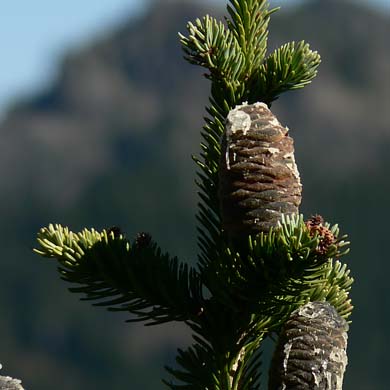
Walter Siegmund, CC BY-SA 3.0, via Wikimedia Commons
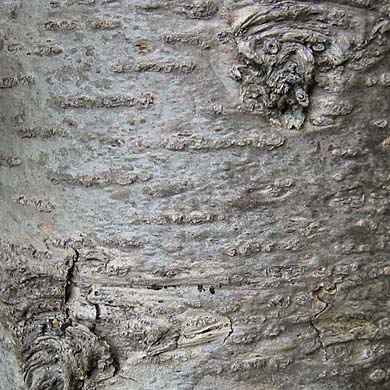
Walter Siegmund, CC BY-SA 3.0, via Wikimedia Commons
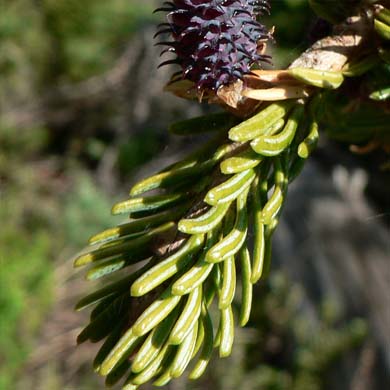
Walter Siegmund, CC BY-SA 3.0, via Wikimedia Commons
Related links
- Date modified :
